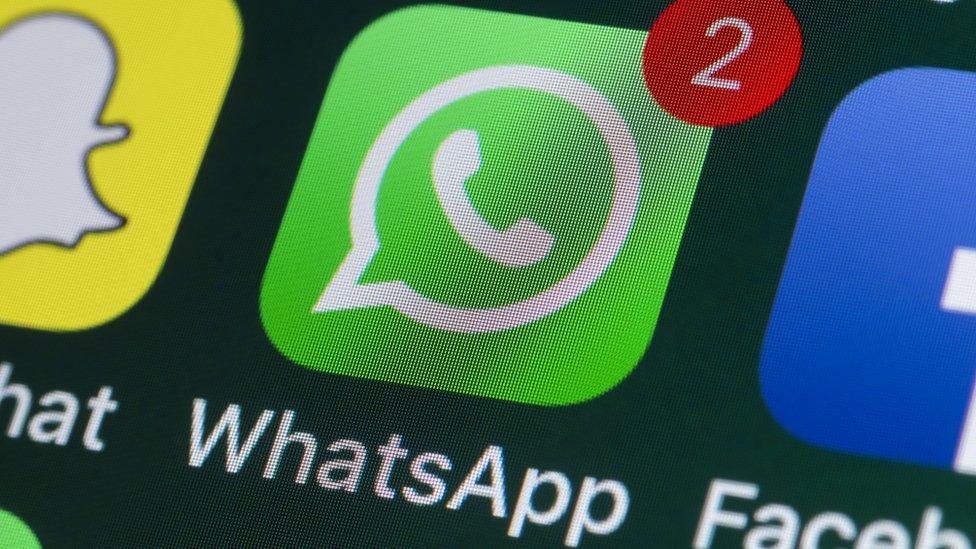UK Covid inquiry: 'Wales felt like second-class citizens in pandemic'
- Published
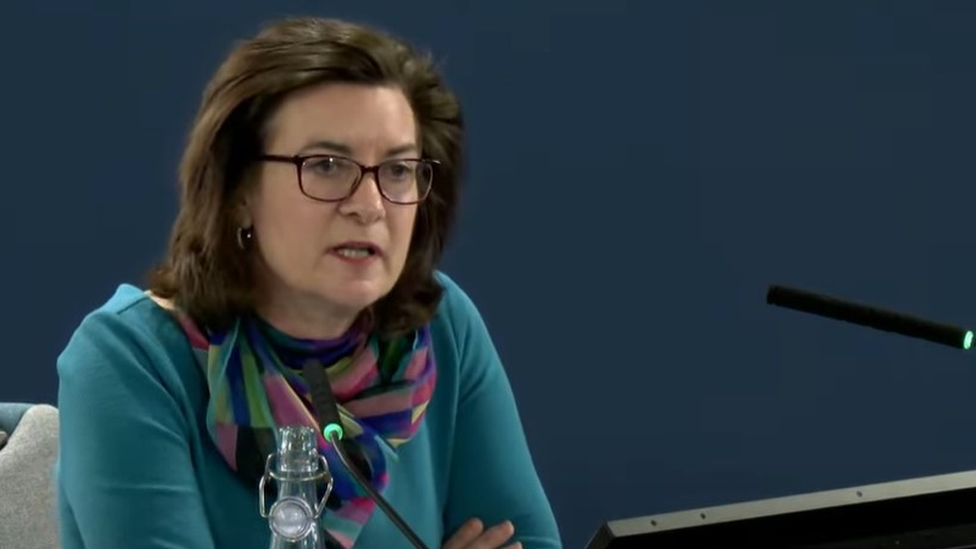
Baroness Eluned Morgan said the Welsh cabinet had made a "brave decision" to introduce its own short autumn lockdown
Welsh people felt like they were being treated as "second-class citizens" by the UK government during Covid, an inquiry has heard.
Baroness Eluned Morgan, Wales' health minister, criticised Downing Street's handling of the pandemic at a hearing of the UK Covid-19 inquiry in Cardiff.
This is the final week the inquiry is taking place in Wales.
Baroness Morgan took over as health minister from Vaughan Gething during the health crisis in May 2021.
She said the Welsh cabinet had made a "brave decision" in introducing its own short autumn lockdown following scientific advice calling for a "circuit breaker".
However, she said she was "really disappointed" by the Treasury's refusal to fund furlough payments, especially when financial support was made available when England later went into its own lockdown.
"What was suitable for them was not suitable for us two weeks earlier," Baroness Morgan told the inquiry, adding: "That was a huge disappointment.
"I think that was a very difficult time for us as a nation because people felt like we were second-class citizens in the context of the UK government."
Inquiry chair Baronness Hallett pointed out there was a "different side to that debate", which she had heard in previous evidence.
Joanne Cecil, counsel to the inquiry, also showed the hearing several of Baroness Morgan's text messaged and emails from the pandemic, including one to a colleague that showed swearing, and another to the health minister of Northern Ireland that said: "We are doomed".
Baroness Morgan apologised for her "fruity language" and said it would not "go down very well" with her husband, who is a priest.
She also said the message was sent early in her appointment and followed discussions about opening the borders to travellers from France on the same day another meeting heard the country should be put on the "red" restricted list.
"I just found that a massive contradiction and very worrying," she said.
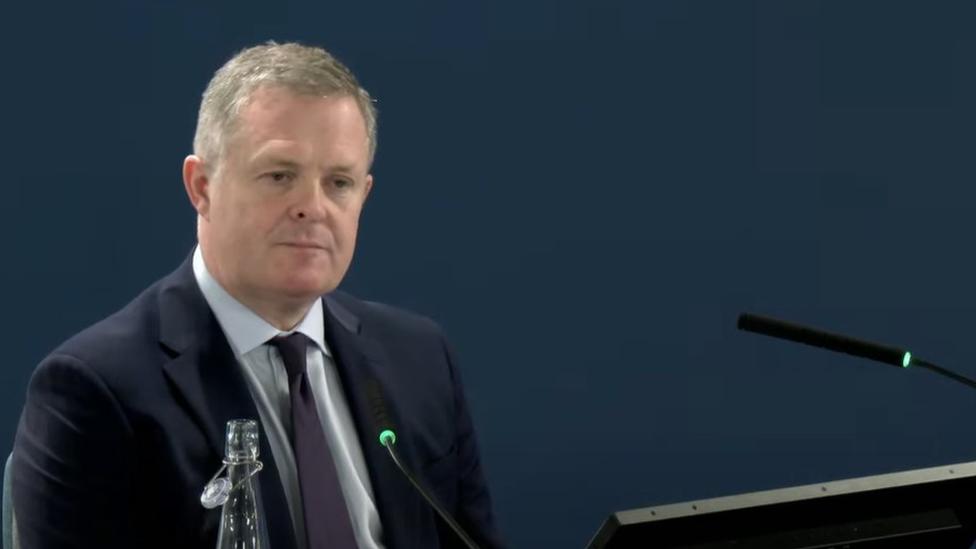
Jeremy Miles, Wales' education minister, said he regarded messages on Whatsapp as a "chat between work colleagues" and not somewhere key decisions were made
The topic of WhatsApp messages has been a constant theme throughout the inquiry, and it was raised again in Tuesday's hearing with Baroness Morgan asked why some of her messages were deleted.
"I don't know quite why or when but clearly there were only a couple of examples where that happened," she said.
The inquiry also saw sections of her notebooks which showed her questioning if then-UK health minister Matt Hancock was "hopeless" and the "prime minister [Boris Johnson] - chaos".
Deleted messages
Another person to address the inquiry on Tuesday was Jeremy Miles, who was appointed as Wales' education minister in May 2021.
He was previously the Welsh government's counsel general, the officer in charge of laws in Wales, and minister for European integration, as well as being tasked with Covid recovery.
Mr Miles is competing with Wales' Economy Minister Vaughan Gething, the former health minister who appeared before the inquiry on Monday, to become Welsh Labour's next leader, and therefore Wales' next first minister. The result will be announced on Saturday.
Mr Miles also said the Welsh government did not technically have the power to close schools during the pandemic.
Schools in Wales were closed on 18 March 2020, more than a week before the first lockdown on 26 March, and Mr Miles said at the time the actual power rested with school governing bodies.
He argued the Welsh government had been giving a "clear statement of policy" for what it would like to see schools do, and many had already started to close.
"I think from recollection that was welcomed because schools were taking their own decisions to close, so giving it a sense of purpose and a sense that this was happening on a national basis," he said.
Asked whether he was "surprised" a decision on closing schools was taken without seeking legal advice, Mr Miles said he would have "preferred" for some to have been taken.
He was also asked about the use of WhatsApp messages, and whether he accepted it was wrong to use the app on his personal phone to discuss government matters.
He said the policy was that WhatsApp should not be downloaded to government phones, so he had colleagues message him on his personal phone, adding he was not aware using his phone was contrary to the guidance.
Mr Miles said he regarded these messages as "chat between work colleagues", not content relevant to decision making.
After his phone was stolen in 2017, he said he was conscious of personal security so his practice was to delete messages.
"I wish I had kept them," he said.
Mr Miles was also asked to justify the decision by the Welsh government to set fines for breaches of Covid rules, in particular the £10,000 fine given for organising unlicensed music events or raves.
"[Given] the risks that would arise from such an event, we felt it was acceptable to have a notice of that level," he said.
Ministerial advice later recommended the removal of this fine, with a prosecution requirement instead, but the "police wanted to retain" the ability to issue fines for this, Mr Miles said.
He added ministers were considering the "deterrent effect" of the options available.
Another to speak to the inquiry on Tuesday was Rebecca Evans, minister for finance and local government, who said Wales was in a "very, very uncomfortable place" during Covid.
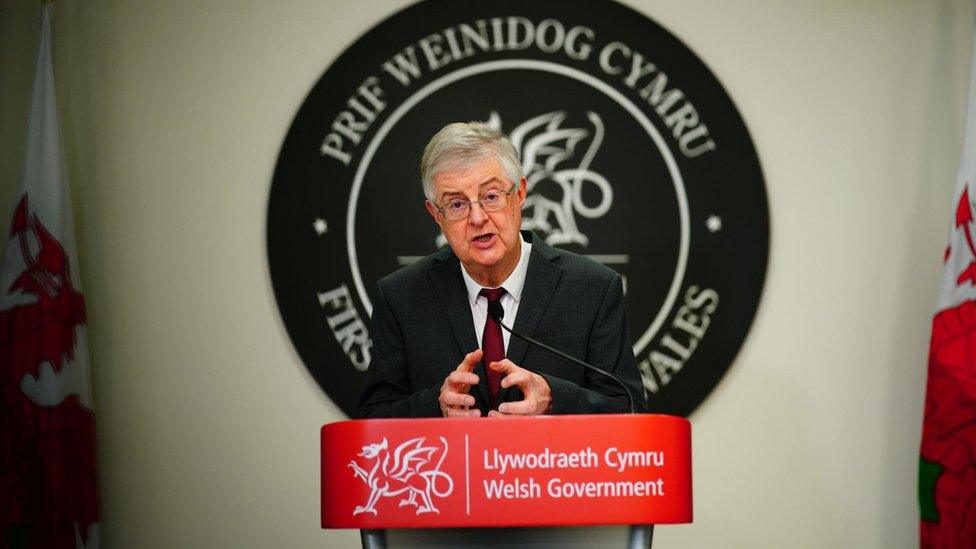
Wales' First Minister Mark Drakeford will appear before the inquiry on Wednesday, days before he departs the job
She said there were "huge pressures" on Welsh ministers and civil servants as they attempted to make financial commitments without having clarity about their final budget.
She also agreed there was a reliance on Westminster for the bulk of the financial support for businesses, accepting that furlough and the Eat Out to Help Out scheme could not have been funded by the Welsh government.
Outgoing First Minister Mark Drakeford will appear before the inquiry on Wednesday, days before he departs the job.
The UK Covid-19 inquiry's three-week stint in Wales will end on Thursday, when closing statements will be heard.
- Published11 March 2024
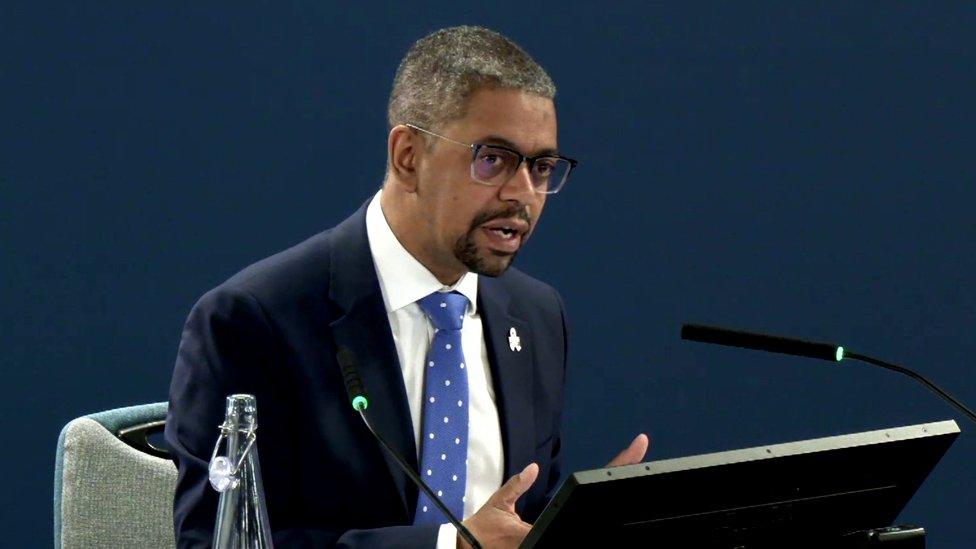
- Published25 January 2024
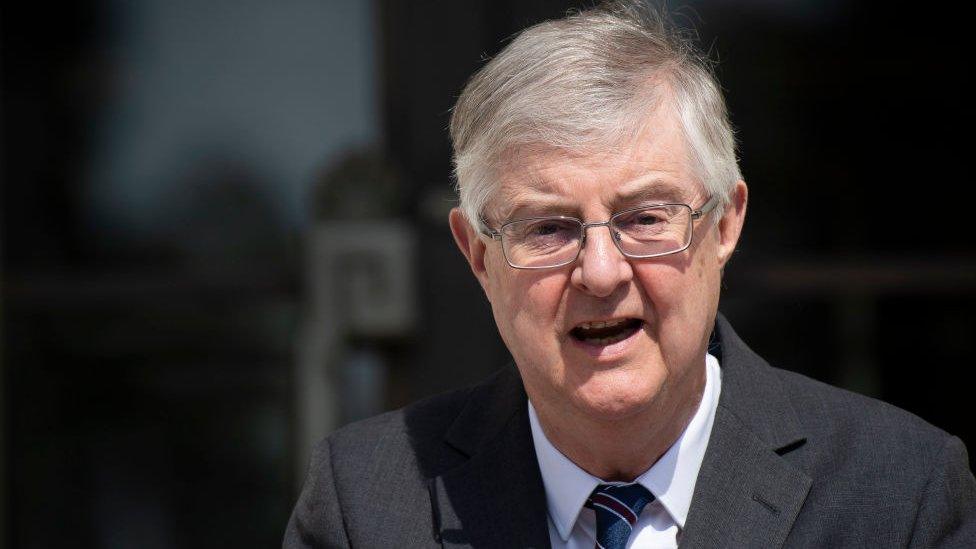
- Published7 November 2023
